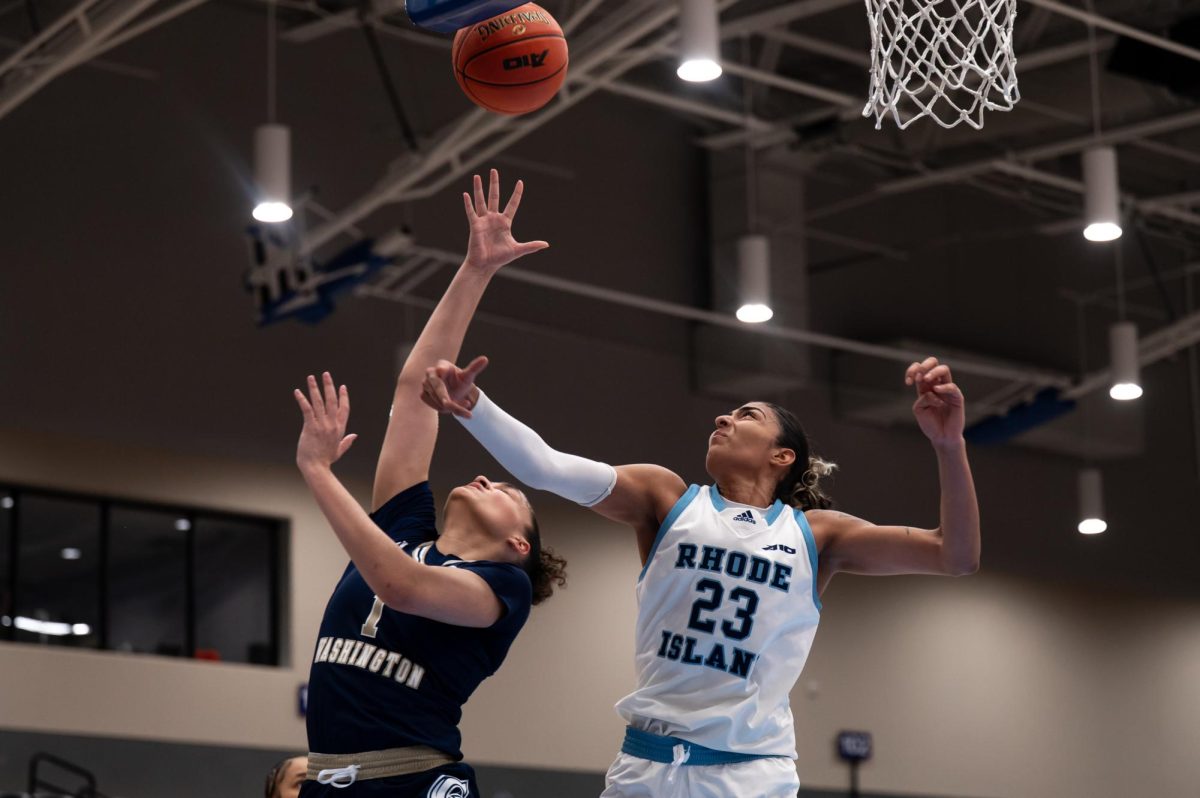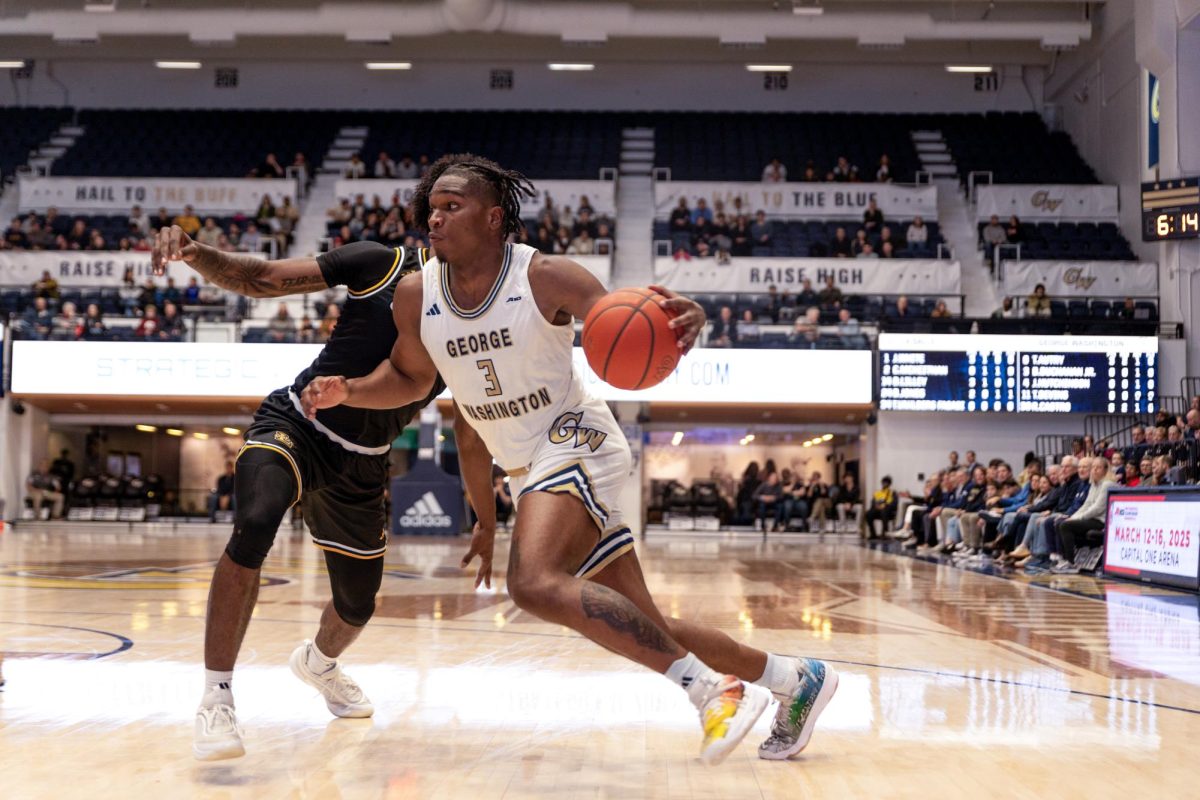Tennis balls with “HIV” printed in red letters were passed behind the backs of student athletes and D.C. middle school students, while chants of “find the ball” echoed through the Athletic Director’s Club in the Smith Center last Tuesday. As the chants subsided, the game participants would try to guess who on the opposing team had the ball. Sometimes there would be a lucky guess, but more often than not, the participants could not tell who was left with the tennis ball.
The lesson: You can’t tell if someone has HIV by simply looking at them.
The game was part of the graduation ceremony of students from grades five through eight from nine D.C. schools who participated in the Grassroots Project, a program through which Division I athletes educate middle school students about HIV/AIDS.
The Grassroots Project, which includes the Grassroot Hoyas and the Grassroot Colonials, was started by Georgetown graduate student Tyler Spencer, a men’s rower. Spencer worked in southern Africa teaching soccer players how to be AIDS educators through a program with De Beers diamond mines. In response to what he learned while in Africa, Spencer started the Grassroots Project upon returning to D.C., utilizing what he called the “untapped resource” of Division I athletes.
After a successful pilot semester at Georgetown, Spencer reached out to GW athletes, who responded favorably to the idea of participating in the project. Grassroot Colonials was started this fall.
Throughout the eight-week program, the athletes educate students on key messages and facts about HIV/AIDS through games and activities. The “head-fake learning” approach allows the students to take in the messages in a more effective way.
In addition to using games to teach important lessons, the athletes give the students nicknames to make the learning environment fun, said junior cross country runner Zach Borenstein, whose nickname is “Crunch Wrap.”
“The nicknames make it more fun and the kids feel a little more relaxed,” he said. “They feel like they’re not really in a school environment even though we are teaching them things that are really valuable. We do it in a fun way.”
The Grassroots Project is looking to expand its involvement in the coming semester. One goal of the program is to have all five Division I schools in the D.C. metro area – including American, Howard and Maryland – participate.
Grassroot Colonials is looking to expand as well. This semester, 20 Colonials athletes participated in the program. The goal for next semester is to double that number to 40 participating athletes.
In addition to AIDS education, the students learn several life lessons from the athletes whom they see as role models, said senior Emily Gower, a women’s soccer player.
“It’s not just about HIV/AIDS education,” she said. “We talk about a lot of things, like building your support system and making good decisions and choices in all of life.”
Borenstein said the program not only benefited the students, but the athletes as well.
“I gained a lot of exposure to different parts of D.C.,” he said. “What we’re teaching these kids are thing that we may already know, but it’s about getting a chance to understand their stories because they definitely have experiences that are especially unique to who we are and where we come from. It’s a cliché thing to say, but it is very rewarding.”
At the graduation event, which took place on World AIDS Day, students received certificates and T-shirts for successfully completing the program, as well as a special surprise: tickets to the men and women’s basketball double-header against Howard on January 2.
Sophomore Jake Miner, a men’s rower, said that overall, the program is a great way for student athletes to be involved in their community.
“Those are A-10 soccer players. I was in a national championship and one of our cross country guys was in the national championship. All of a sudden, we’re just hanging out with kids doing this,” he said. “That’s a pretty awesome thing. That’s why Grassroots is innovative because it takes a part of the college population and uses their abilities in a whole different way. No one ever thought about that for HIV/AIDS education.”






